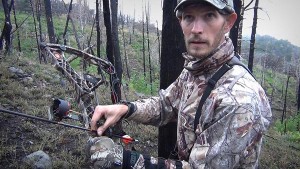Deer Hunting: Art or Science?
Is deer hunting more art or science? What a great question!
A year ago I had an interesting conversation with a non-hunter about art and science and how it relates to hunting. Now, this non-hunter has a friend who loves hunting more than anything, but his results over the years have been very poor. The hunter is not only a scientist by profession, but a scientist in just about every other facet of life. Almost everything he does is calculated and planned out, with little left to chance. In other words, he’s an extreme left-brain oriented person.
In contrast, I’m a real right-brain oriented person. I’m an artist not only by profession, but in most other ways as well. So, my only common ground with the scientist is our love for hunting. This got me thinking.
If you aren’t familiar with the difference between left and right brains, maybe this comparison will help:
Characteristics of left-brainers:
- They tend to be numbers oriented.
- They are very rules oriented
- They are facts oriented
- They tend to be less open to abstract ideas such as religion, mysticism, romance, etc.
- They are more confident, but also more close-minded
- They tend to be politically conservative
- They tend to be more financially successful
In contrast, here are some characteristics of right-brainers:
- They are art oriented
- They are more intuitive and open-minded
- They have a general distrust for science, facts, and numbers
- They are more hopeful and romantic
- They have more politically liberal views
- They are more visually oriented
Ideally, a person is perfectly balanced between the two, meaning the two halves of their brain work together rather than one dominating the other. Most people are balanced somewhere between the two extremes, but some people aren’t. Being extreme one way or the other is actually dangerous because it means we are close-minded and prone to mistakes, or even mental disorders.
How does being left- or right-brained affect hunting success?
When a person bags a giant buck, the scientist will immediately begin assessing the facts surrounding the event. Where, when, and how did this hunter come to arrow such a great trophy? If the scientist can just answer these simple questions, then a formula can be assigned and implemented in the future, right?
But in real-life, hunting doesn’t always work that way. For instance, what if the hunter just wandered into a section of unknown woods on a hunch and stumbled into a big buck. Miraculously, the buck didn’t notice the hunter who immediately sent an arrow sailing perfectly through its heart. End of story for the average hunter, but a great mystery for the scientist. None of the scientist’s questions are answered, and so there can be only one possible explanation: sheer, lethal luck. And the scientist knows that absolutely nothing can be learned from luck, so all the data must be dismissed. Could it be that the scientist is asking the wrong questions?
In contrast, the artist views hunting as art. Yeah, there might be a little science thrown in, such as knowledge of deer behavior and the physics of his bow, but the true artist-hunter glides fearlessly along a path of infinite variables and gut feelings. He might begin the day with a basic plan or direction in mind, but he almost immediately veers away from preconceptions and ends up in mysterious places he hadn’t considered before. The scientist may do this occasionally, but the unknown is usually avoided. Scientists tend to stick with the plan at all costs.
As an artist, I’m probably a little biased. I see the purely scientific approach to hunting as a triple threat to success. The first problem is over-planning. The scientist has probably stared at a map for so long that he just knows where the deer will be based on a number of physical factors. Now nothing can lead him away from his plan. The second problem is over-packing. He is aware that the woods are full of infinite challenges, variables, and dangers, so he overfills his pack. This in turn slows him down and makes him noisier. The third problem is ignoring intuition. The scientist is still prone to intuition and a heightened sense of awareness just like every other hunter, however he is less likely to respond to mysterious forces like hunches, intuition, premonitions, gut feelings, etc. This narrows his vision by ignoring the gentle prodding’s of Nature.
Game over. The results are in and the winner is…
The Artist.
But scientists don’t despair. Anyone can change. The first step to becoming more artistic in hunting is to admit you’re a left-brainer. This can be a challenge since left-brained people don’t always see the value of using the right brain, particularly when it comes to hunting. At this point you need to take an honest assessment of your hunting success. Has all your planning paid off? Could there be more to hunting than sheer science and numbers?
For you left-brainers out there I urge you to read back over my previous blog-posts entitled Zen in Hunting: Part 1, 2, 3. The left-brainer might scoff at such mystical forces as Zen, but I feel like it’s the top contributor to my hunting success. I believe there are forces beyond our comprehension that want us to succeed and are willing to help us, if only we keep an open mind. Gather the data, formulate a hypothesis, and then let go and let Nature be your guide. Go with the flow.
That’s what Zen bowhunting is all about.

